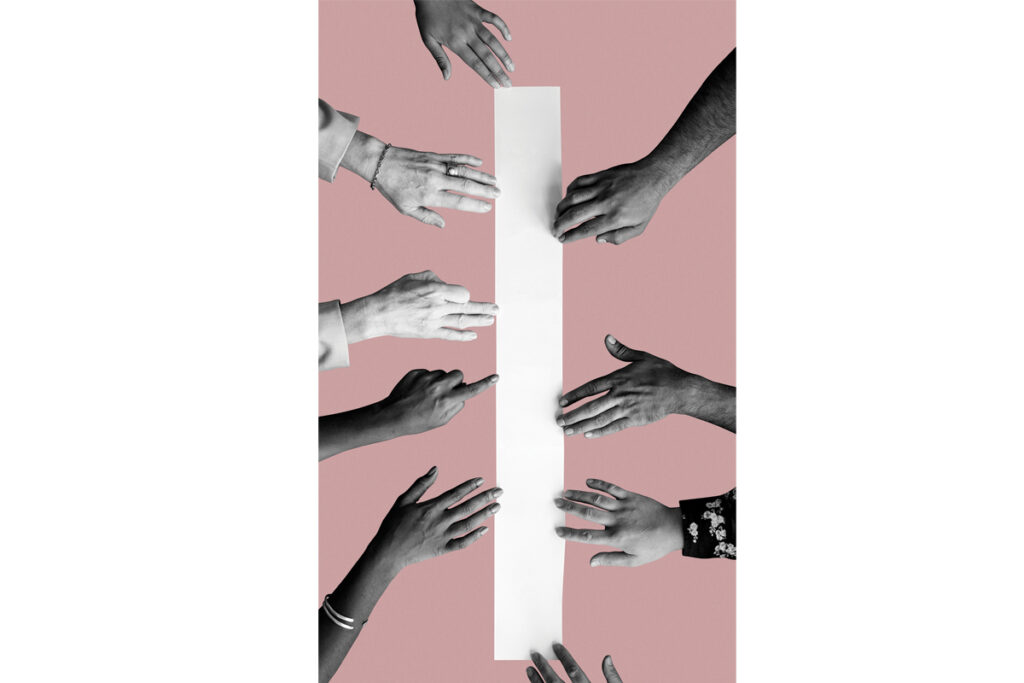Myriad factors contribute to significant, quantifiable, scalable, and sustainable DEI impactWords by Ankita Mehra
“Inclusivity can be achieved, with the right efforts at the right time”
As a proud Queer person who has been working in Diversity and Inclusion for the last 6 years, I’ve met great leaders, and learned a lot.

But let me tell you all, I am privileged
After realizing who I am, I got immense support from my sister, I came out to the world, I got accepted by my family, I got mental health support when I wanted, I got a job, and I got access to great mentors and managers to help me grow professionally.
But let me step back and think, do we know any other lesbian women like me? I can guess 1-2. That’s it.
Let us see where the problem is
We have seen that the representation of minorities has been ignored for years. Sadly, it has not been taken that seriously, and it continues to impact many lives and businesses, so let’s look at Exclusion before we speak of Inclusion.
How does Exclusion happen?
Prejudice and Discrimination, or Bias or prejudice, are based on factors such as race, gender, sexual orientation, religion, or socioeconomic status. As we know, this can lead to discriminatory behaviour and exclusion. Cultural norms and stereotypes can perpetuate exclusion by reinforcing certain expectations and discriminating against those who deviate from these norms. Additionally, lack of awareness and understanding, and ignorance or lack of awareness about diverse experiences, backgrounds, and perspectives can contribute to exclusion.
Education and awareness-raising efforts are essential to promote understanding, while economic inequalities and disparities in access to resources can contribute to exclusion, limiting opportunities for certain individuals or communities, Fear or discomfort with what is perceived as different or unfamiliar can lead to exclusion.
How we can create more Inclusion?
- Promote Diversity, Not just at work but at home as well
- Start Inclusion as an Education Subject (I wish schools would have covered it)
- Inclusive hiring
- Accessibility
- Auditing Culture
- Training and Education (Keeping EQUITY in Mind, as everyone did not have the same privilege as us)
- Understanding Privileges and standing up as an ALLY
- Inclusive Policies
- Equal workspace/homes for all
Yes, there are many ways to work on man-made problems, but my experience in DEI helped me to know more and better. I feel the major challenge is that many companies don’t see it as a problem, or even as an opportunity. However, numerous studies have demonstrated that diverse and inclusive workplaces are more innovative, productive, and financially successful. Embracing diversity and fostering inclusion isn’t just a moral imperative; it’s a strategic business decision.
Diversity and inclusion go beyond ticking boxes for representation. It’s about creating an environment where everyone feels heard, valued, and empowered to bring their authentic selves to work. Inclusive workplaces benefit from a variety of perspectives, which can lead to more creative problem-solving and better decision-making.
In the professional realm, inclusive hiring practices play a crucial role. Companies should actively seek candidates from diverse backgrounds, ensuring that their workforce reflects the richness of the global community. This not only brings different perspectives to the table, but also sends a powerful message about the company’s commitment to inclusivity.
Accessibility is another critical factor. Inclusive spaces should be physically accessible to individuals with disabilities, and companies should invest in technology and accommodations to ensure everyone can participate fully. Beyond physical spaces, digital accessibility is increasingly important in our tech-driven world.
Inclusive policies, both in the workplace and at home, create a foundation for a more equitable society.
These policies should address issues like equal pay, family leave, and opportunities for advancement, ensuring that everyone has a shot at success.
Ultimately, creating a more inclusive world requires a collective effort. Companies, educational institutions, and individuals all play a role in dismantling barriers to inclusion. It’s not just about decoding exclusion but actively working to build a more inclusive, compassionate, and understanding society.
The journey toward inclusivity is ongoing, and by taking these steps, we can contribute to a brighter, more inclusive future for all.
As a Queer person myself and advocate for diversity, equity, and inclusion, I have witnessed the positive impact that inclusivity can have on individuals and organisations. My journey highlights the broader need for systemic change and a commitment to dismantling barriers that hinder true inclusivity.
With everyone’s support and commitment to making every talent count, we can contribute to a world where diversity is celebrated, differences are embraced, and inclusion is not just a goal but a reality. Let us continue to work together, challenging biases, fostering understanding, and creating spaces where everyone has the opportunity to reach their full potential.
Ankita Mehra (She/Her) is a proud Queer person, and has been working in the Diversity and Inclusion sphere for the last 6 years. In addition to being a LinkedIn Top Voice, she is a 2-time TEDx Speaker, has been featured in MTV Roadies and 90 other publications, and has given 300+ Corporate sessions to talk about Inclusivity and Diversity.


